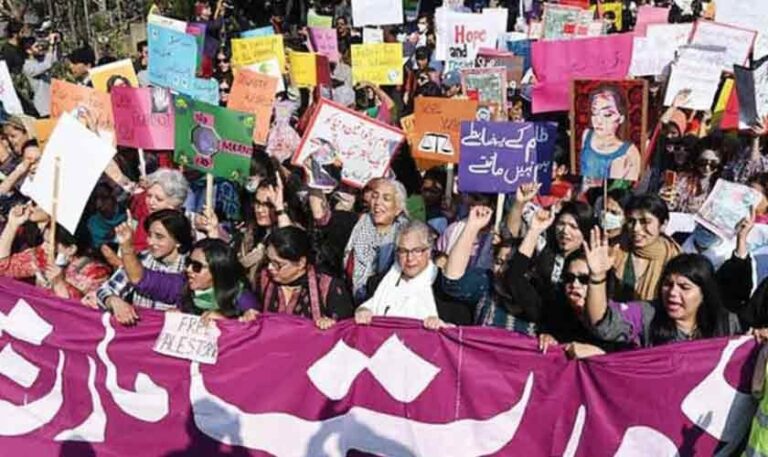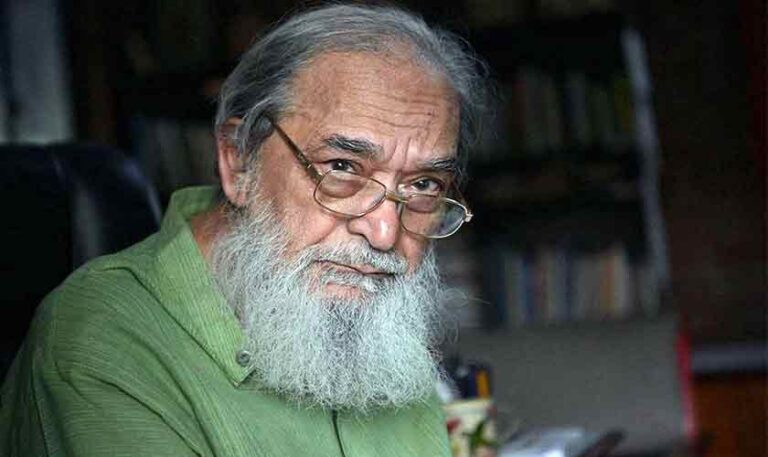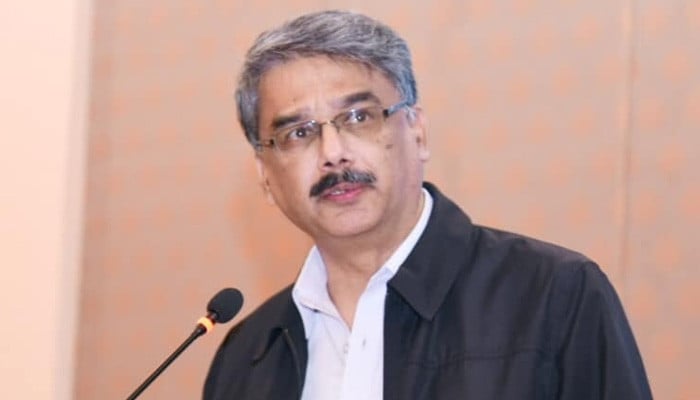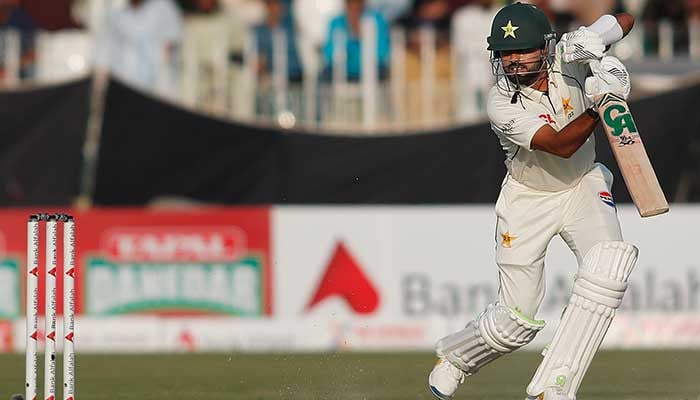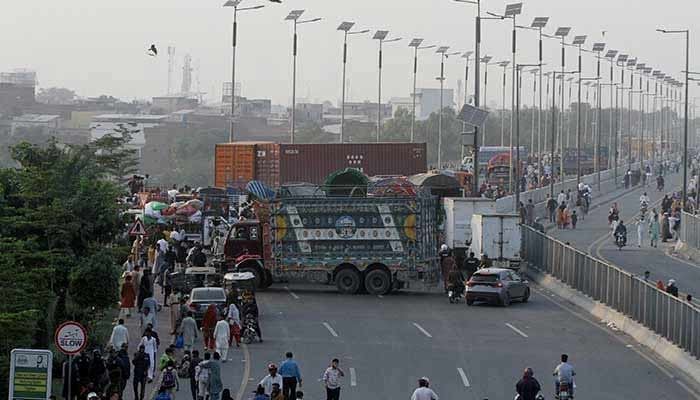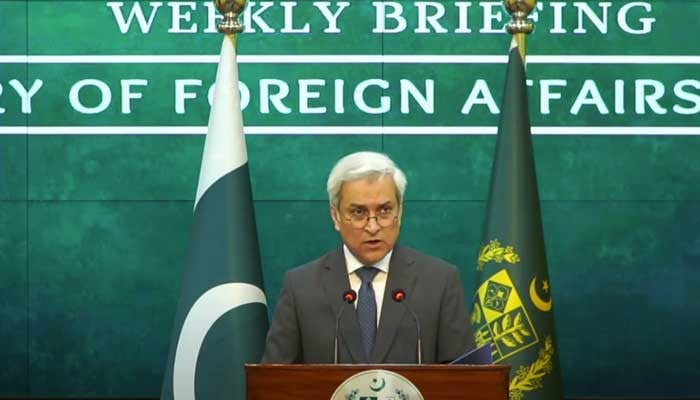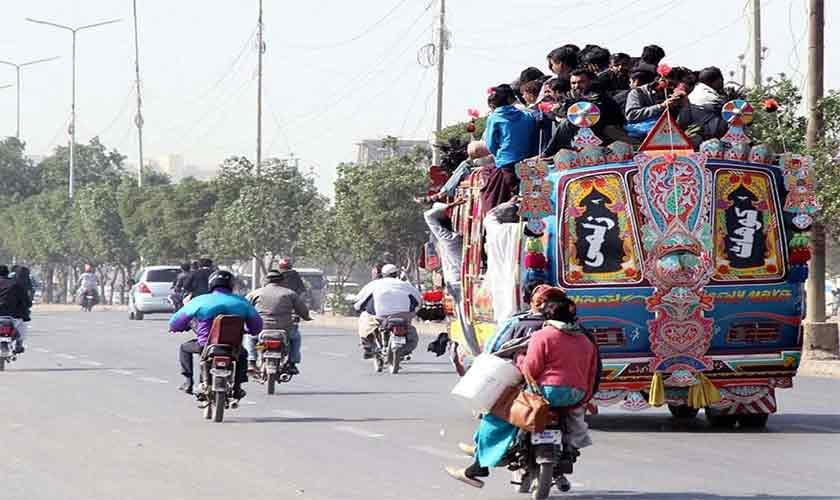
#Commuting #challenges #students #Political #Economy
A student died in a road accident in Karachi on October 10. Protests soon erupted. The protesting students demanded justice for the deceased and better transport facilities for all students. This was not an isolated tragedy. Many past university, school and college students have died in road accidents in Karachi. Bad roads, impatient transport operators, poor enforcement of traffic rules and a general lack of road safety awareness all contribute to the problem.
In the early mornings and afternoons, thousands of overloaded vans of various makes and models shuttle students to and from their schools. No provision is made for weather extremes. Roads in many areas of the city, where schools and colleges are located without proper planning, are blazed. Thus, traffic jams are common along Shara-Faisal, Khaiban-Iqbal, University Road, Pashte Road in Lyari/Khardar and main roads in Nazimabad.
Some of these places become inaccessible due to the chaotic movement of vans, buses, coaches and rickshaws. In recent times, vans have become the dominant mode of transportation for school and college students. While affluent automobiles pick and drop their children, a large number of lower-middle and middle-income households have to rely on vans.
Operators of transport for school, college and university students say fuel prices have risen sharply in the past few years. Some governments in the past have not allowed diesel prices to rise, arguing that it has been consumed by various types of public transport. There is no such policy today. Transporters complain that many school administrations do not allow automatic adjustment of bus fares during the academic session.
Some transporters say they have switched to LPG (Liquid Petroleum Gas). However, the use of LPG in public transport vehicles is prohibited due to fire hazard.
Transporters also allege extortion of bribes by traffic police officials. They say where drivers resist the exercise, they are charged with various violations and fined. Since drivers have to meet school and college hours, they usually don’t challenge authority.
In the early mornings and afternoons, thousands of overloaded vans of various makes and models shuttle students to and from their schools.
Some bus operators say the school administration, too, tries to run away from them. They say that not all money collected from students/parents for travel ends up with them. Some arrangements also charge transporters a registration fee. Given that overhead costs cut into profit margins, transporters rarely bother to invest in the repair and maintenance of their fleet. Some of these vehicles emit harmful fumes due to run-down engines and poor quality lubricants.
Most of the school buses are quite old. Generally lacking access to credit through formal banking channels, transporters have to strictly replenish their fleets. This leads to poor quality of services.
Parents are another important stakeholder. They want to enroll their children in the most reputed institutes irrespective of the location. Sometimes, this results in overspending on bus fees. The mother of four school children said she was paying Rs 26,000 a month for school bus fees.
Most of the buses are parked in busy streets. Some school facilities provide parking spaces or try to accommodate bus operators. Most of the school buses operate without any helper/cleaner. Older children are sometimes performing this task. Most children have no help carrying their heavy school bags when boarding or alighting from buses.
Students lose the ability to focus on their work due to increased travel time and stress. Parents are also concerned about rude behavior by some drivers and their helpers, especially to the youngest children.
School and college arrangements are an important player. Many are accused of indifference, some of whom say they do not see it as one of their primary duties.
Some schools have leveraged acceptable transport contractors and regularly reviewed the quality of the fleet. The common argument is that since the school has no commercial interest in the service, they do not bother to control the routine operation of school transport. Traffic police officials blame transporters, holding them responsible for drivers who lack basic skills and driving licenses. Decreased vehicle fitness; overloading; Incomplete documentation and acceleration.
Drastic reforms are needed to improve the situation. School transportation systems should be managed with fair consideration of the issues. Transporters should have easy access to formal credit to improve their fleet. A monitoring mechanism on the lines of Citizens Police Coordination Committee should be formalized. Latest technologies should be used to ensure safety. Vehicle monitoring devices, which are used to track the movement of automobiles, must be installed in school buses.
It is necessary to increase the number of buses for government universities to avoid overcrowding and reckless driving.
The author is an academic and researcher based in Karachi
